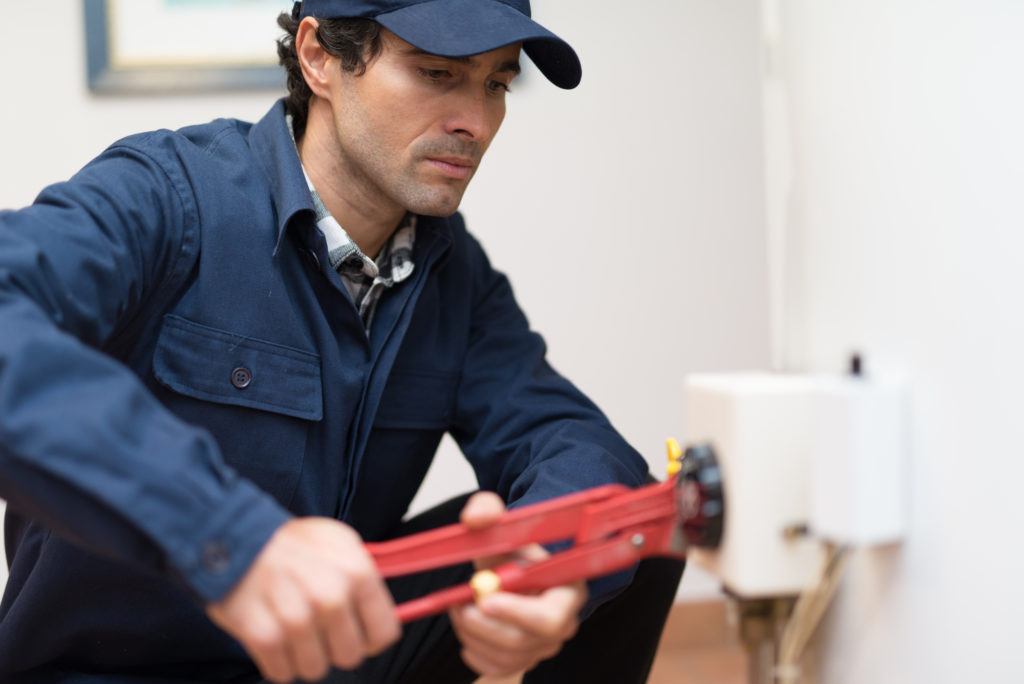What To Do For Regular Heater Malfunctions
What To Do For Regular Heater Malfunctions
Blog Article
They are making a few good pointers regarding Common Problems with Tank Water Heaters overall in this article down the page.

Imagine starting your day without your regular hot shower. That already sets an inadequate tone for the remainder of your day.
Every home requires a dependable hot water heater, however only a few know exactly how to take care of one. One easy method to maintain your hot water heater in top shape is to look for mistakes regularly and repair them as quickly as they show up.
Keep in mind to turn off your hot water heater prior to smelling around for faults. These are the water heater mistakes you are most likely to come across.
Water also hot or also chilly
Every water heater has a thermostat that identifies just how hot the water obtains. If the water coming into your house is also warm despite establishing a hassle-free optimum temperature, your thermostat might be damaged.
On the other hand, too cold water may be due to a stopped working thermostat, a broken circuit, or incorrect gas flow. For instance, if you utilize a gas hot water heater with a damaged pilot burner, you would certainly get cold water, even if the thermostat is in perfect condition. For electric heating units, a blown fuse might be the wrongdoer.
Not nearly enough warm water
Water heaters come in lots of sizes, depending on your hot water demands. If you run out of warm water prior to everybody has had a bath, your hot water heater is too little for your family size. You ought to consider installing a larger hot water heater tank or choosing a tankless water heater, which takes up less area and is much more resilient.
Odd noises
There go to least 5 type of sounds you can learn through a hot water heater, but the most common analysis is that it's time for the hot water heater to retire.
Firstly, you should be familiar with the typical sounds a water heater makes. An electric heating system may sound various from a gas-powered one.
Popping or banging sounds normally suggest there is a slab of sediment in your storage tanks, as well as it's time to cleanse it out. On the other hand, whistling or hissing audios may just be your valves allowing some stress off.
Water leaks
Leakages can originate from pipes, water links, shutoffs, or in the worst-case situation, the storage tank itself. With time, water will wear away the tank, and also locate its way out. If this takes place, you need to replace your water heater as soon as possible.
Nevertheless, prior to your change your entire storage tank, make sure that all pipelines remain in location which each valve functions flawlessly. If you still need aid determining a leak, call your plumber.
Rust-colored water
Rust-colored water means one of your hot water heater elements is rusted. Maybe the anode pole, or the tank itself. Your plumber will have the ability to recognize which it is.
Lukewarm water
No matter just how high you set the thermostat, you won't get any warm water out of a heater well past its prime. A water heater's efficiency might decrease with time.
You will certainly additionally obtain lukewarm water if your pipes have a cross connection. This suggests that when you turn on a faucet, warm water from the heating system streams in alongside normal, cold water. A cross connection is easy to spot. If your hot water taps still follow shutting the hot water heater shutoffs, you have a cross link.
Discoloured Water
Rust is a major source of unclean or discoloured water. Corrosion within the water storage tank or a falling short anode rod can trigger this discolouration. The anode rod secures the container from rusting on the within and need to be inspected yearly. Without a rod or a correctly functioning anode rod, the warm water promptly rusts inside the tank. Contact a professional water heater service technician to establish if changing the anode rod will take care of the trouble; otherwise, replace your water heater.
Conclusion
Ideally, your water heater can last 10 years prior to you require an adjustment. Nonetheless, after the 10-year mark, you might experience any one of these faults much more frequently. At this point, you should include a new water heater to your spending plan.
How To Troubleshoot 3 Common Water Heater Problems in Twin Cities
The Water Heater Is Leaking
A leaky cold water inlet valve A loose pipe fitting A leaky temperature and pressure relief valve A corroded anode rod A cracked tank Turn Off Your Water Heater:
Shut off your gas water heater by turning the gas valve on the unit to the “OFF” position. Shut off your electric water by switching its power off at your electrical panel. Look for a two-pole breaker labeled “water heater” and turn it to the “OFF” position. Move the ball valve connected to the water heater to be perpendicular to the piping at a 90° angle. Look for the Leak:
Depending on whether the water is coming from the tank's top or bottom, you’ll want to look for the leak in different locations.
If the leak comes from the top of the tank, carefully look for water escaping from the cold water inlet valve or loose pipe fittings. Rusted hot and cold water valves can have loose connections with the tank, with water leaking out of them.
https://mspplumbingheatingair.com/blog/how-to-troubleshoot-3-common-water-heater-problems
We hope you enjoyed our part on Water Heater Repair and Troubleshooting. Many thanks for spending some time to browse our posting. Loved our write up? Please share it. Let somebody else check it out. Thanks so much for going through it.
Stress-free fix? Contact. Report this page